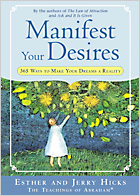They are very secure when they know ‘what is the RIGHT thing to do, and what is the WRONG thing to do.’ Sometimes they are uncertain, they go this way and that, and are easily influenced. A child who knows ‘where he stands’ is a happy child. As parents we can give them this sense of security.
You know you show her your family values every day.
Little kids need to be shown what you expect, as they learn what is right and wrong in your house. They learn from watching you, they learn from you telling them. Even quite big kids and teenagers benefit hugely from having values spelt out for them – not rammed down their throats of course, but subtly discussed.
You see parents teaching their children their values every day, even if they are not conscious of what they are doing. In the supermarket one mom will allow her children to help themselves to grapes in the fresh produce area, and even to open a pack of chocolate, to eat as they go around, leaving the wrapper on some shelf somewhere. The value she is teaching is that it’s okay to take things that belong to businesses. At her friend’s house perhaps she would not allow her children to take things in the same way, or perhaps she would…..
It’s actually fun to start to think of what you stand for, and to write your values down.
Where do you stand on some of the following?
- Honesty and integrity
- Kindness
- Our family sticks together and supports each other
- Fairness
- Taking account of each family member’s feelings (positive and negative)
- Co-operation and thoughtfulness
- Reliability
- Good manners
- Responsibility
- How to treat people worse off than you
- The importance of education
- Kindness to helpless animals
- Acceptable behaviour and consequences of certain actions
- How to respond to people more important/richer/famous than you
- How important each family member is
- We eat healthy food and look after our bodies
- Respect for authority
At our friend’s house we say quietly to her “No, we can’t just eat Carol’s grapes. We don’t just help ourselves to things belonging to someone else. Let’s ask if she can spare a little bunch for you to have for morning tea.“ The fact that you are quietly talking to her is also showing that you respect her, and will not embarrass her in public.
To your continued growth and journey!
Kytka Hilmar-Jezek
President/CEO
Waldorf Homeschoolers



















1 comment:
You have been busy! Nice work and great information!
Post a Comment